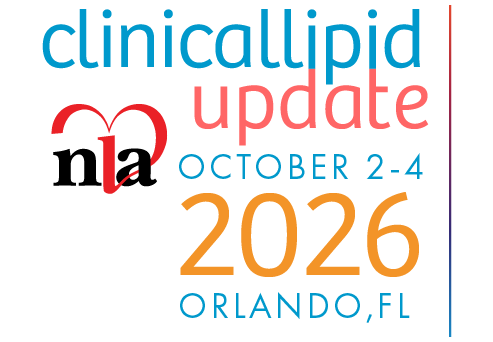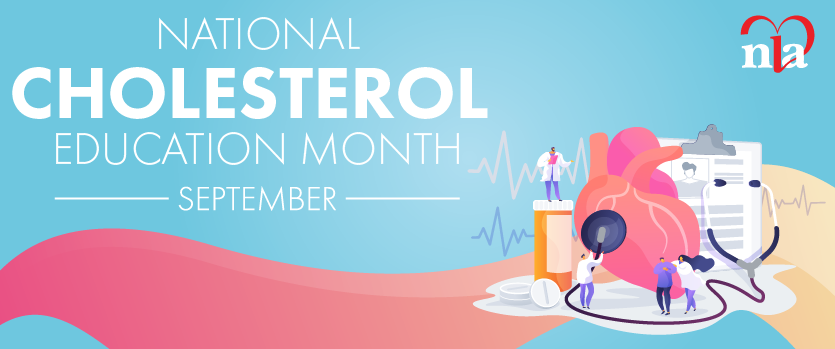HMG-CoA reductase inhibitors (statins) were FDA-approved in 1987 and their introduction has revolutionized lipid and cardiovascular (CV) management for the past three decades.(1,2,3,4) Despite this, statins may be the most maligned pharmaceutical agents ever introduced. There are multiple potential causes for statin non-adherence and discontinuation. (5) Real and perceived side effects are cited as a critical contributor to this phenomenon. In particular, the FDA statement and package labeling about potential statin-associated neurocognitive effects has magnified this concern out of proportion to its real effect and needs to be addressed because it negatively impacts adherence to critical therapy.(6)
Between 1/4 and 1/3 of all US adults over the age of 40 are using or have been prescribed statin medications.(7) Approximately 50% of patients discontinue statin therapy within one year and adherence rates decrease over time.(4, 8-12) Among persons who discontinue statins, there are increases in first and recurrent CV events over time. Once a person experiences any type of adverse event, actual or perceived, 3/4 will refuse to retry or resume statin treatment.(13)
Non-adherence to statins has tremendous costs to society in lives and dollars. (4,12) In a database of >3 million adults, Colantonio reported only 60% statin adherence rates in over 200,000 postmyocardial infarction (MI) patients. In addition, in over 600,000 persons with diabetes and over two million unaffected individuals, there was only a 35% statin adherence rate.(12) Costs, cultural beliefs, perceived lack of need, and fear of toxicity/adverse effects all decrease statin adherence.(10,12,14,15) Rodriguez et al reported better adherence for moderate-intensity statin as opposed to high-intensity statin. However, there was lower adherence among women, members of minority groups and the extremes of age.(1,15) Evidence has shown that statin non-adherence is associated with a 50% increase in CV events, mortality, and hospitalizations.(10)
Duration of therapy, complexity of drug regimens, disruption of lifestyle, the asymptomatic nature of lipid disorders, patient opinions, ineffective doctor-patient communications, socioeconomic status, education levels, and countless emotional factors contribute to non-adherence to statin therapy.(15,16) The nocebo effect, described as the consequence of negative expectations of a medication contributing to adverse effects, is particularly relevant with statins.(16,17) Unedited webbased platforms and social media serve to magnify myths and misconceptions of excessive harm from statins.(16,18)
Myalgias and hepatotoxicity (both reversible with drug cessation) are well-known, feared statin toxicities. However, fear of memory loss and cognitive impairment has been stoked by the 2012 FDA warning about potential neurocognitive effects of statins (6,19) which reads as follows:
There have been rare post-marketing reports of cognitive impairment (e.g.,memory loss, forgetfulness, amnesia, memory impairment, confusion) associated with statin use. These cognitive issues have been reported for all statins. The reports are generally non serious, and reversible upon statin discontinuation, with variable times to symptom onset (1 day to years) and symptom resolution (median of 3 weeks).
Neurocognitive effects have been prospectively and retrospectively assessed in multiple statin trials and there is no signal of consistent effect. Studies have utilized different metrics for assessing the potential cognitive effects and the variety of tools does muddy the water when trying to assess the true effect across studies. Assessment of cognitive function can include testing in four domains: executive functioning, memory, language, and visuospatial ability, which can be quantified by standardized tests.
Statin effects on cognition has been reviewed in the medical literature, including case reports, and randomized controlled trials (RCTs), systematic reviews and meta-analyses.(7,19-24-26)
Unfortunately, there is no consistency in the methodologies used in comparing and testing cognitive domains and statin effects. In fact, many RCTs had no cognitive testing done during the trial, and when completed, the testing varied between trials. Reported adverse event rates due to statins differ widely between RCTs (1-2%) and “real-world” clinical observations (10-20%). It is assumed that sensitive patients are excluded during statin RCT run-in periods. However, Vonbank et al did not see indication of this inherent bias in their review of 27 RCTs.(16)
The systematic review and meta-analysis by Ott et al of 25 statin RCTs concluded that statin therapy was not associated with cognitive impairment and questioned the continued merit of the FDA warning about potential adverse effects of statins on cognition.(20) Richardson et al demonstrated a lower risk of cognitive impairment with statins, supported heavily by one study in >20,000 individuals showing no difference between statin and placebo.(21) In a large pooled analysis of 13 trials including >2.7 million persons, there was a demonstrable protective effect of statins on development of Alzheimer’s Disease (AD), suggesting benefit rather than risk.(26) Similarly, Swiger et al did not reveal evidence for decreased cognition among statin-users in their review of 23,000 persons.(22) An interesting finding reported by Redelmeier was a 13% reduction in dementia risk among statin users in 29,000 senior citizens who had previously suffered concussions.(27)
The science connecting statins, cholesterol, and amyloid beta (Aß) protein is still evolving and data is conflicting. (7,28) No differences among categories of statins has been shown, when comparing hydrophilic (rosuvastatin, pravastatin and fluvastatin) to lipophilic statins (lovastatin, simvastatin, atorvastatin, pitavastatin, and the discontinued cerivastatin), or fungal-derived (lovastatin, simvastatin, and pravastatin) versus the synthetic (all of the rest) statins.(7,19,24) Studies with pravastatin and simvastatin have not demonstrated prevention of progression to dementia and treatment with either simvastatin or atorvastatin improved existing mild-moderate AD or vascular dementia (VaD) when studied. The review by Schultz gives an in-depth dualmechanism discussion, with arguments and evidence for both statin cognitive impairment and statin protection against dementia.(7)
Cholesterol is a major component of myelin, neurons, and astrocytes, and is synthesized in astrocytes. Higher brain cholesterol levels have been linked to increased Aß deposition. While lipoproteins do not cross the bloodbrain barrier efficiently, oxysterols and 27-hydroxycholesterol, which are proportionally increased with blood cholesterol, are found in the central nervous system.(25) Observational data have associated low cholesterol with increased risk of AD, and high cholesterol levels in later life with decreased dementia risk.(29) There may be neurocognitive protection by statins from their ability to attenuate endothelial dysfunction, increase nitric oxide, anti-inflammatory effects, antioxidant effects, antithrombotic effects, and angiogenic effects.(3,7,30) On the other hand, statins reduce ubiquinone, which may impair mitochondrial function and increase oxidative stress.(3,7,31) Aolipoprotein E (Apo E) genetic variants affect both serum cholesterol levels and risk of AD. (7,19,32,33) Two-thirds of people with AD in clinical trials carry the ApoE4/E4 genotype.(7,19,32,34) Homozygous ApoE4/E4 increases Aß protein burden and inflammation and may be a biomarker for subjects who would benefit the most from statins in reducing their risk of AD and dementia.(7,19,32) The rs384662 polymorphism of the HMGCR gene is a modifier of risk, age of onset, and progression of mild cognitive impairment to clinically manifest AD; this risk is enhanced in ApoE4/E4 carriers.(19,32,35)
Treatment with proprotein convertase subtilisin/kexin 9 monoclonal antibodies (PCSK9 inhibitors) enables achievement of very low levels of low density lipoproteincholesterol (LDL-C). The relationship between low cholesterol and cognitive decline was assessed in the EBBINGHAUS (Evaluating PCSK9 Binding Antibody Influence on Cognitive Health in High Cardiovascular Risk Subjects) sub-study of the FOURIER (Further Cardiovascular Outcomes Research with PCSK9 Inhibition in Subjects with Elevated Risk) trial (36), and in a safety analysis of the ODYSSEY LONG TERM trial (Long-Term Safety And Tolerability Of Alirocumab In High Cardiovascular Risk Patients With Hypercholesterolemia Not Adequately Controlled With Their Lipid Modifying Therapy).[37] They both demonstrated no significant difference in cognitive function in patients treated to very low LDL-C levels with added evolocumab or alirocumab, as compared to those treated with statin (+/- ezetimibe) therapy, alone.(28)
Overall, the evidence for cardiovascular benefit, and emerging literature showing cognitive benefits, far outweigh any increased neurocognitive risks attributable to statin therapy.(3,7) Furthermore, the FDA 2012 warning about potential risks contributes to reduced adherence to prescribed statins and jeopardizes health outcomes. The FDA must retract and remove the 2012 warning from statin labeling. With the FDA warning in place, no matter how convincing the evidence, statin phobia, statin discontinuation, and statin non adherence will continue, to the detriment of patients and society. Without a change in the FDA statement, I am not sure if this fog can ever lift.
Disclosure statement: Dr. Lending has received honoraria from Amgen.
References
1. Wang TJ, Stafford RS, Ausiello JC & Chaisson CE, Randomized Clinical Trials and Recent Patterns in the Use of Statins. Am Heart J 2001;141:957-63. DOI: 10.1067/mhj.2001.115587
2. Genest J, McPherson R, Frohlich J, et.al. Canadian Cardiovascular Society/Canadian Guidelines for the Diagnosis and Treatment of Dyslipemia and Prevention of Cardiovascular Disease in the Adult 2009 Recommendations. Can J Cardiology 2009;25:567-79. DOI: 10.1016/s0828-282x(09)70715-9
3. Rojas-Fernandez CH & Cameron JCF, Is Statin-Associated Cognitive Impairment Clinically Relevant? Annals of Pharmacotherapy 2012;46(4):549-557 DOI: 10.1345/aph.1Q620
4. Kim J, Bui A, Kwon J & Lucas A, Overcoming Barriers to Statin Adherence US Pharm 2019;44(6):19-22. DOI: unavailable
5. Cohen JD., Brinton EA., Ito MK. & Jacobson TA, Understanding Statin Use in America and Gaps in Patient Education (USAGE): An internet-based survey of 10,138 current and former statin users. Journal of Clinical Lipidology, 2012;6(3), 208–215. https://doi. org/10.1016/j.jacl.2012.03.003
6. FDA Drug Safety Communication: Important Safety Label Changes to Cholesterol-Lowering Statin Drugs. www.fda.gov/Drugs/ DrugSafety/Ucm293101.htm#hcp
7. Schultz BG, Patten D & Berlau D, The Role of Statins in Both Cognitive Impairment and Protection Against Dementia: a Tale of Two Mechanisms. Transl Neurodegener 2018;7:5. DOI: 10.1186/ s40035-018-0110-3
8. Shalev V, Chodick G, Silber H, et.al. Continuation of Statin Treatment and All-Cause Mortality: a Population-Based Cohort Study. Arch Intern Med 2009;169(3):260-8. DOI: 10.1001/ archinternmed.2008.552
9. Birtcher K, When Compliance is an Issue-How to Enhance Statin Adherence and Address Adverse Effects. Curr Atheroscler Rep 2015;17(1):471 DOI: 10.1007/s11883-014-0471-8
10. Serhan MC, Colantonio LD, Manthripragada AD, et.al Statin Intolerance and Risk of Coronary Heart Events and All-Cause Mortality Following Myocardial Infarction. J Am Coll Cardiol 2017 Mar; 69(11):1386-1395. DOI: 10.1016/j.jacc.2016.12.036
11. Rodriguez F, Maron DJ, Knowles DJ, et.al. Association of Statin Adherence with Mortality in Patients with Atherosclerotic Cardiovascular Disease JAMA Cardiol. 2019 Mar 1;4(3):206-213. DOI: 10.1001/jamacardio.2018.4936
12. Colantonio LD, Rosenson RS, Deng L, et.al. Adherence to Statin Therapy Among US Adults Between 2007 and 2014. JAHA 2019;8: e010376. DOI:10.1161/JAHA.118.010376.
13. Medford MT, Tajeu GS, Tanner RM, et.al. Willingness to be Reinstated on a Statin (from the REasons for Geographic and Racial Differences in Stroke Study) Am J Cardiology 2018 June 2, online DOI: 10.1016/amjcard.2018.05.016.
14. Baroletti S & Dell’Orfano H, Medication Adherence in Cardiovascular Disease Circulation 2010;121:1455-8. DOI: 10.1161/circulationAHA.109.904003
15. Fung V, Graetz I, Reed M7 Jaffe M, Patient-Reported Adherence to Statin Therapy, Barriers to Adherence, and Perceptions of Cardiovascular Risk. PLoS One 2018;13(2):e0191817. DOI: 10.1371/journal.pone.0191817
16. Vonbank V, Drexel H, Agewall S, et.al. Reasons for Disparity in Statin Adherence Rates Between Clinical Trials and Real-World Observations: a Review. European Heart Journal-Cardiovascular Pharmacotherapy 2018 Oct;4(4):230-6. DOI: 10.1093/ehjcvp/ pvy028.
17. Planes S, Villier C & Mallaret M. The Nocebo Effect of Drugs. Pharmacol Research & Perspectives 2016;4:e00208. DOI: 10.1002/ prp2.208.
18. Pocock SJ, Elbourne DR, Randomized Trials or Observational Tribulations? NEJM 2000;342:1907-9. DOI: 10.1056. NEJM200006223422511.
19. Chu CS, Tseng PT, Stubbs B, et.al. Use of Statins and the Risk of Dementia and Mild Cognitive Impairment: a Systematic Review and Meta-Analysis. Sci Rep 8, 5804 (2018) DOI: 10.1038/s41598-01824248-8.
20. Ott BR, Daiello LA, Dahabreh IJ, et.al. Do Statins Impair Cognition? A Systematic Review and Meta-Analysis of Randomized Controlled Trials. J. Gen Int Med 2015 Mar; 30(3):348-358. DOI:10.1007/ s11606-014-3115-3.
21. Richardson K, Schoen M, French B, et.al. Statins and Cognitive Function: A systematic review. Ann Int Med 2013;159:688-697. DOI:10.7326/0003-4819-159-10-201311190-00007
22. Swiger KJ, Manalac RJ, Blumenthal RS, et.al. Statins and Cognition: A Systematic Review and Meta-Analysis of Short- and Long-Term Cognitive Effects. Mayo Clin Proc 2013;88:1213-1221. DOI: 10.1016/j.mayocp.2013.07.013.
23. Gauthier JM & Massicotte A, Statins and Their Effect on Cognition. Let’s Clear Up the Confusion. Can Pharm J (Ott) 2015 May;148(3): 150-5. DOI: 10.1177/1715163515578692
24. Rojas-Fernandez CH, Goldstein LB, Levey AI, et.al. An Assessment by the Statin Cognitive Safety Task Force 2014 Update. J.Clin Lipidol 2014;8:S5-16. DOI: 10.1016/j.jacl.2014.02.013
25. Benarroch EE. Brain Cholesterol Metabolism and Neurologic Disease. Neurology 2008;71:1368-1373. DOI: 10.1212/01. wnl.0000333215.93440.36
26. Macedo AF, Taylor FC, Casas JP, et.al. Unintended Effects of Statins from Observational Studies in the General Population: Systematic Review and Meta-Analysis. BMC Med 2014; 12:51. DOI: 1186/1741-7015-12-51
27. Redelmeier DA, Manzoor F, Thiruchelvam D, et.al. Statin Use and Risk of Dementia After Concussion. JAMA Neurol 2019;76(8):887896. DOI: 10.1001/jamaneurol.2019.1148
28. Bitzur R, Remembering Statins: Do Statins Have Adverse Cognitive Effects? Diabetes Care 2016;39(Suppl.2): S253-9. DOI: 10.2337/ dcS15-3022
29. Mielke MM, Zandi PP, Sjögren M, et.al. High Total Cholesterol Levels in Late Life Associated with a Reduced Risk of Dementia. Neurol 2005;64:1689-1695. DOI: 10.1212/01. WNL.0000161870.78572.A5
30. Lefer AM, Scalia R, Lefer DJ. Vascular Effects of HMGCoAReductase Inhibitors (Statins) Unrelated to Cholesterol Lowering: New Concepts for Cardiovascular Disease. Cardiovasc Res 2001;49:281-7. doi:10.1016/S0008-6363(00)00247-9
31. Langsjoen PH & Langsjoen AM,. The Clinical Use of HMGCoA Reductase Inhibitors and the Association of Coenzyme Q10. A Review of Animal and Human Publications. Biofactors 2003;18:101111. DOI: 10.1002/biof.5520180212
32. Geifman N, Diaz Brinton R, Kennedy RE, et.al. Evidence for Benefits of Statins to Modify Cognitive Decline and Risk in Alzheimer’s Disease. Alzheimers Research and Therapy 9: 10 (2017). DOI: 10.1186/s13195-017-0237-y
33. Poirier J, Bertrand P, Poirier J, et.al. Apolipoprotein E Polymorphism and Alzheimer’s Disease. Lancet 1993;342(8873): 697-9. DOI: 10.1016/0140-6736(93)91705-Q
34. Schneider LS & Sano M, Current Alzheimer’s Disease Clinical Trials: Methods and Placebo Outcomes. Alz Dement 2009;5(5):388397. DOI: 10.1016/j.jalz.2009.07.038
35. Leduc V, de Beaumont L, Theroux L, et.al. HMGCR is a Genetic Modifier for Risk, Age of Onset, and MCI to Alzheimer’s Disease in a Three Cohorts Study. Mol Psychiatry 2015;20(7): 867-873. DOI: 10.1038/mp.2014.81
36. Giugliano RP, Mach F, Zavitz K, et.al. Cognitive Function in a Randomized Trial of Evolocumab. NEJM 2017;377:633-643. DOI: 10.1056/NEJMoa1701131
37. Robinson JG, Farnier M, Krempf M, et.al. Effcacy and Safety of
Alirocumab in Reducing Lipids and Cardiovascular Events. NEJM 2015; 372:1489-1499. DOI: 10.1056/NEJMoa1501031 Additional references
38. World Health Organization. Fact Sheet 2017. Cardiovascular diseases (CVDs). www.who.int/news-room/fact-sheets/detail/ cardiovascular-diseases-(cvds).
39. Muangpaisan W, Brayne C, et.al. Systematic review of statins for the prevention of vascular dementia or dementia. Geriatr Gerontol Int 2010;10:199-208.DOI: 10.1111/j.1447-0594.2009.00579.x






.jpg)
.png)











